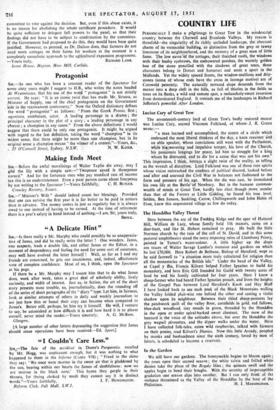Lucius Cary of Great Tew
The seventeenth-century lord of Great Tew's badly restored manor was. Lucius Cary, second Viscount Falkland, of whom.J. R. Green wrote:—
"a man learned and accomplished, the centre of a circle which embraced the most liberal thinkers of the day, a keen reasoner and an able speaker, whose convictions still went with the Parliarnent, while his wavering and inipulsive temper, his love of the Church, ' his passionate longings for peace, led him to struggle for a king
whom he distrusted, and to die for a cause that was not his own." This impression, I think, betrays a slight twist of the reality, as telling as the wrench of distortion. Lord Falkland was one of those rare spirits whose vision outreached the confines of political discord, looked before and -after and assessed the Civil War in balances not fashioned to the form and pressure of his age. When the die was cast, he immolated his own life at the Battle of Newbury. But in the humane common- wealth of minds at Great Tew, hardly less elect though more, secular than that of the Ferrers at little Gidding, he found his true level. Selden, Ben Jonson, Suckling, Carew, Chillingworth and John Hales of Eton, knew this sequestered village as few do today.






























 Previous page
Previous page